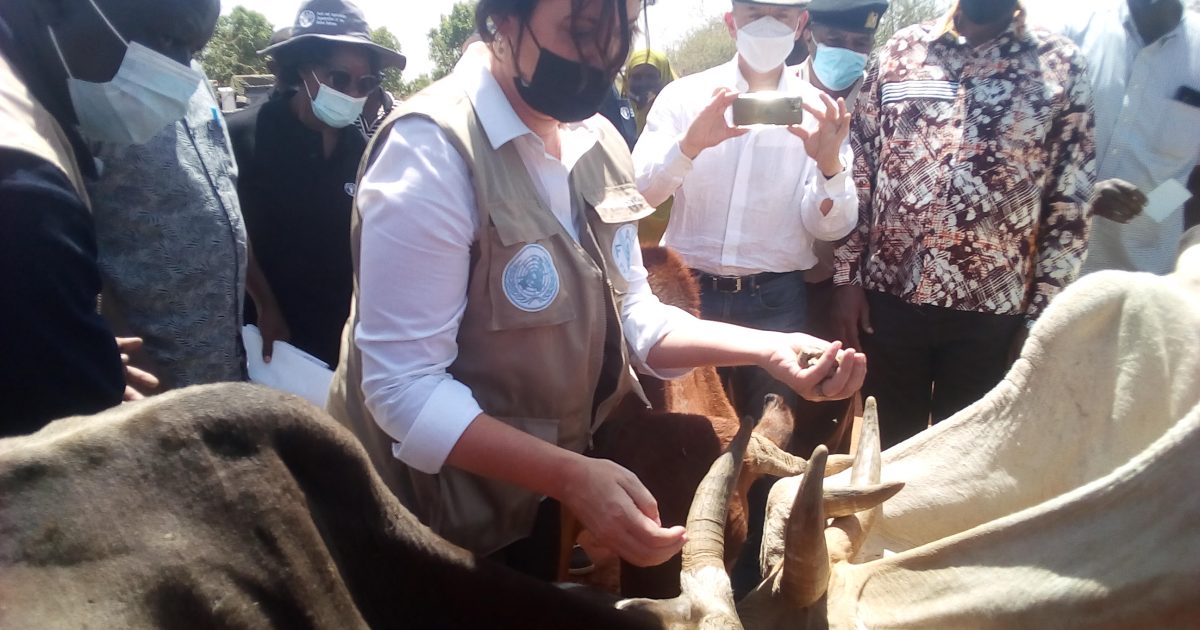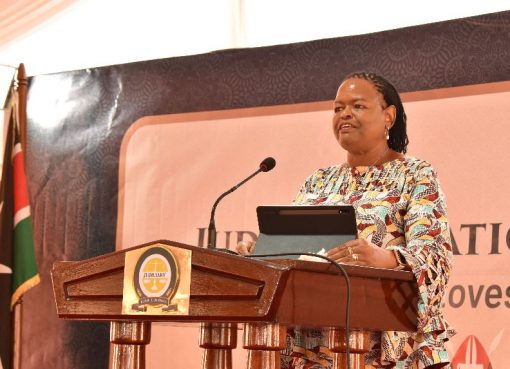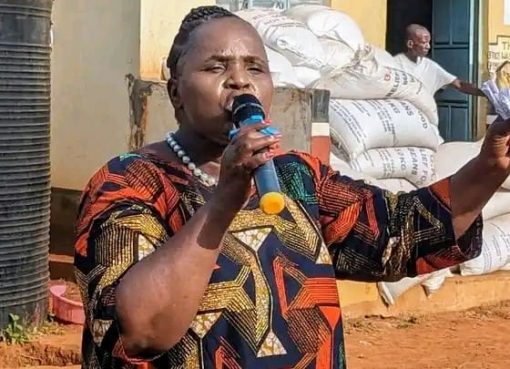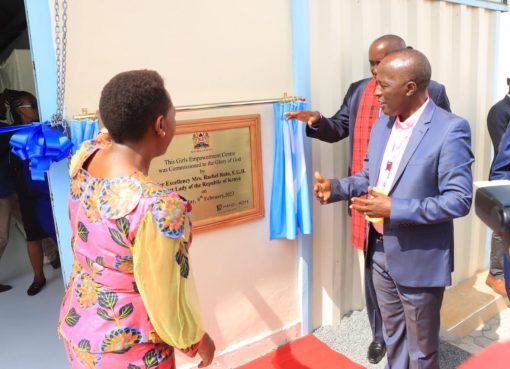United Nations’ Food and Agriculture Organisation (FAO) Deputy Director General (DG) Beth Bechdol has expressed concern over the ravaging drought in pastoralist inhabited areas of Northern Kenya and called on the international community to urgently make interventions to mitigate the situation.
Speaking during a tour of Moyale Sub-county in Marsabit County where the organisation is implementing a capacity building project for farmers in a bid to make them resilient to the harsh climatic conditions, Ms Bechdol was shocked by the state of affairs and called for joint effort to reverse the trend.
Astonished to see carcasses and abandoned animals left to die by the roadside, she described the challenge faced by the pastoralist communities as unacceptable.
Ms Bechdol called for devising of new ways to address the situation as opposed to just availing resources as a matter of urgency.
The DG who was accompanied by the Devolution Chief Administrative Secretary (CAS) Abdul Bahari and the UN country resident representative Stephen Jackson expressed concern that the situation was getting out of hand with the pastoralists getting overwhelmed.
She said that to effectively address the climate change driven challenges, it required renewed methodologies and a collaborative approach to the problem by all actors.
“Deliberate coordination of efforts to address weaknesses to climate change should be improved,” she said.
In his remarks, a similarly stunned Mr Jackson noted that the drought situation was overwhelming, with farmers losing livestock which is their main source of livelihood.
He said the government, both at county and national level had done much of what was expected but the situation was now more dire amidst scarce resources hence the need to pull resources to avert loss of lives.
Mr Jackson added that interventions by UN affiliated bodies like FAO, World Food Programme (WFP) and UNICEF as well as other organisations had managed to fund half of the appeals made by the government hence the urgent need to revise the assistance upwards.
He cautioned that unless prompt measures are taken, the possibility of starvation and loss of lives was inevitable.
“Drought is running faster than we can, with three failed rain seasons and animals are dying,” he pointed out adding; “We need to bring our acts together and urgently, otherwise lives are going to be lost,” he said.
FAO is currently providing 24 vulnerable households in Adeso area of Moyale with enriched animal feeds with each beneficiary receiving 150 kilograms of pellets to sustain animals left behind at the manyattas.
Livestock have died in their thousands not only in Marsabit County but also in the Northern region of Kenya, depriving pastoralists their economic mainstay.
Efforts made by the government and development partners like FAO and WFP to enable farmers to diversify and make them more food secure by venturing into crop farming and bee keeping ventures have also been frustrated by rain failure.
Additionally, seeds provided by the government have wasted while bees are unable to make honey as flowering plants have withered.
Migrating patterns of pastoralist communities in search of grazing resources is no longer tenable as the land carrying capacity has been weakened by vagaries of weather and can no longer hold large herds of livestock.
Climate change which has occasioned rain failure for three seasons in a row has also led to non-regeneration of pasture fields while water sources have drastically reduced in yields with some having dried up altogether.
In Teso area, FAO is running a resilience programme where 1,000 needy families have been trained on diversification, instead of relying on livestock rearing alone.
The move apart from making the families resilient does improve on the quality of food uptake hence addressing the problem of malnutrition among children. Alternative sources of income include beekeeping which is modeled on the local community’s traditional methods, poultry farming and drought resistance and fast maturing crop farming.
A resident, Tunna Wario, who has lost four out of his thirteen heads of cattle to the drought disclosed that FAO has also donated farming tools, seeds and grinder machines for making hay.
CAS Bahari said the government had responded promptly to the plight of the communities by availing funds for animal off-take, cash transfers for the most vulnerable and providing relief food for general distribution to the affected.
The CAS described the current drought situation in the country as devastating as it had set in when the economy had been battered by the Covid-19 pandemic.
Mr Bahari prevailed upon donors and well-wishers to scale up on the assistance flowing currently saying the responsibility was quite enormous for the government to shoulder alone.
According to a report by the National Drought Management Authority (NDMA), over 200,000 people are experiencing food insecurity.
By Sebastian Miriti





